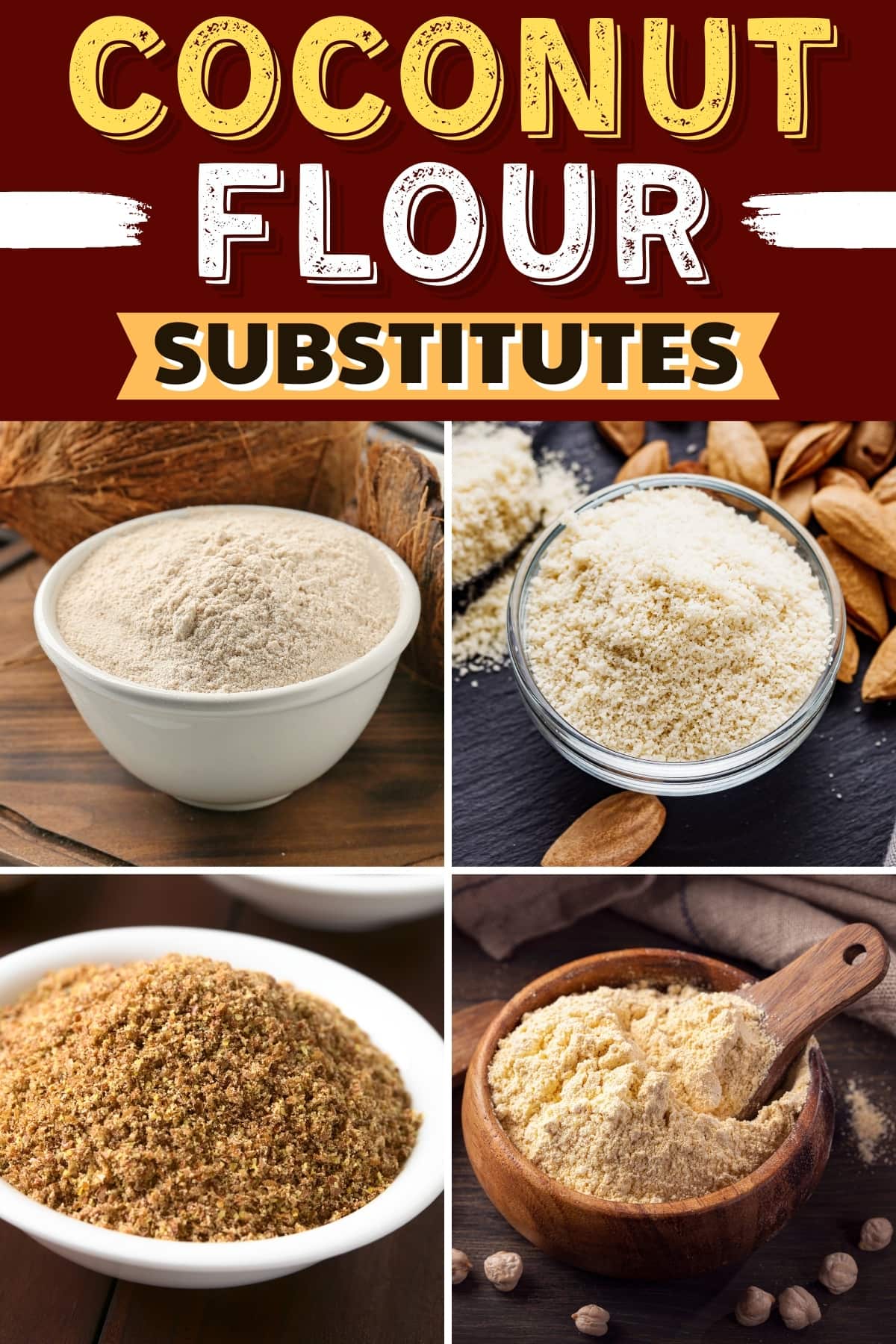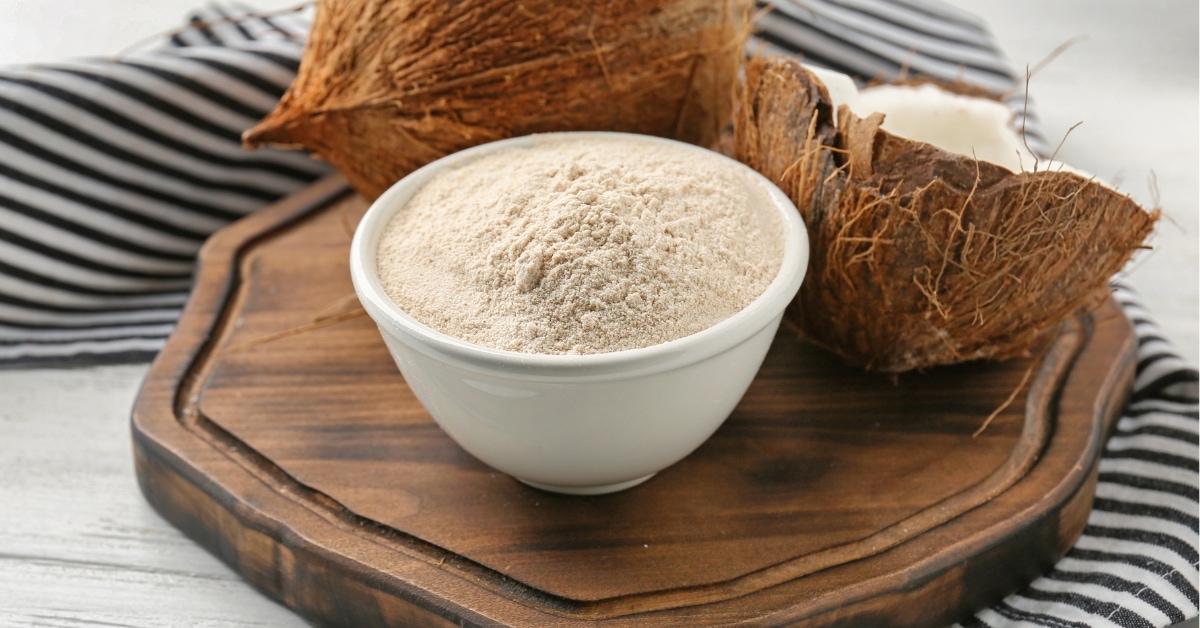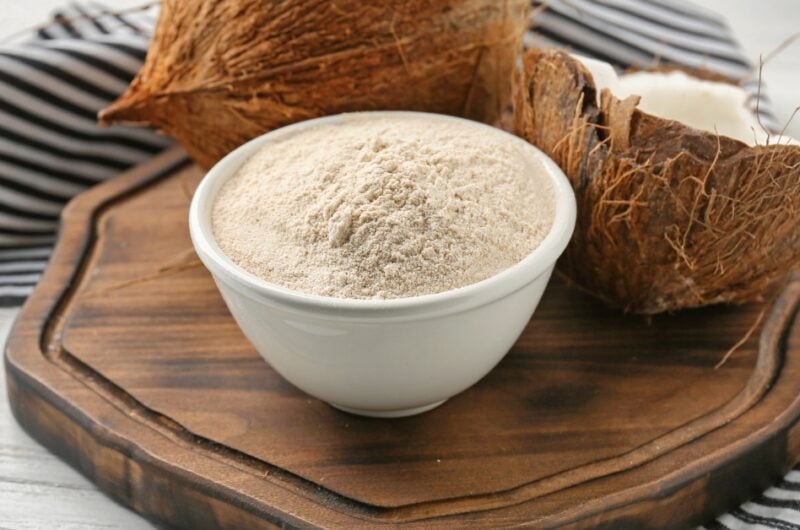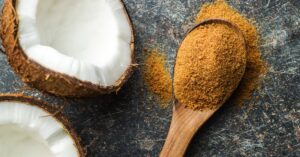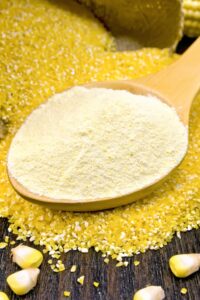Save your baking day with these coconut flour substitutes!
From nutty almond flour to protein-packed chickpea flour and rice flour, you can experiment with these choices.
Whether you’re baking, crafting a savory dish, or simply experimenting with flavors, I have you covered!
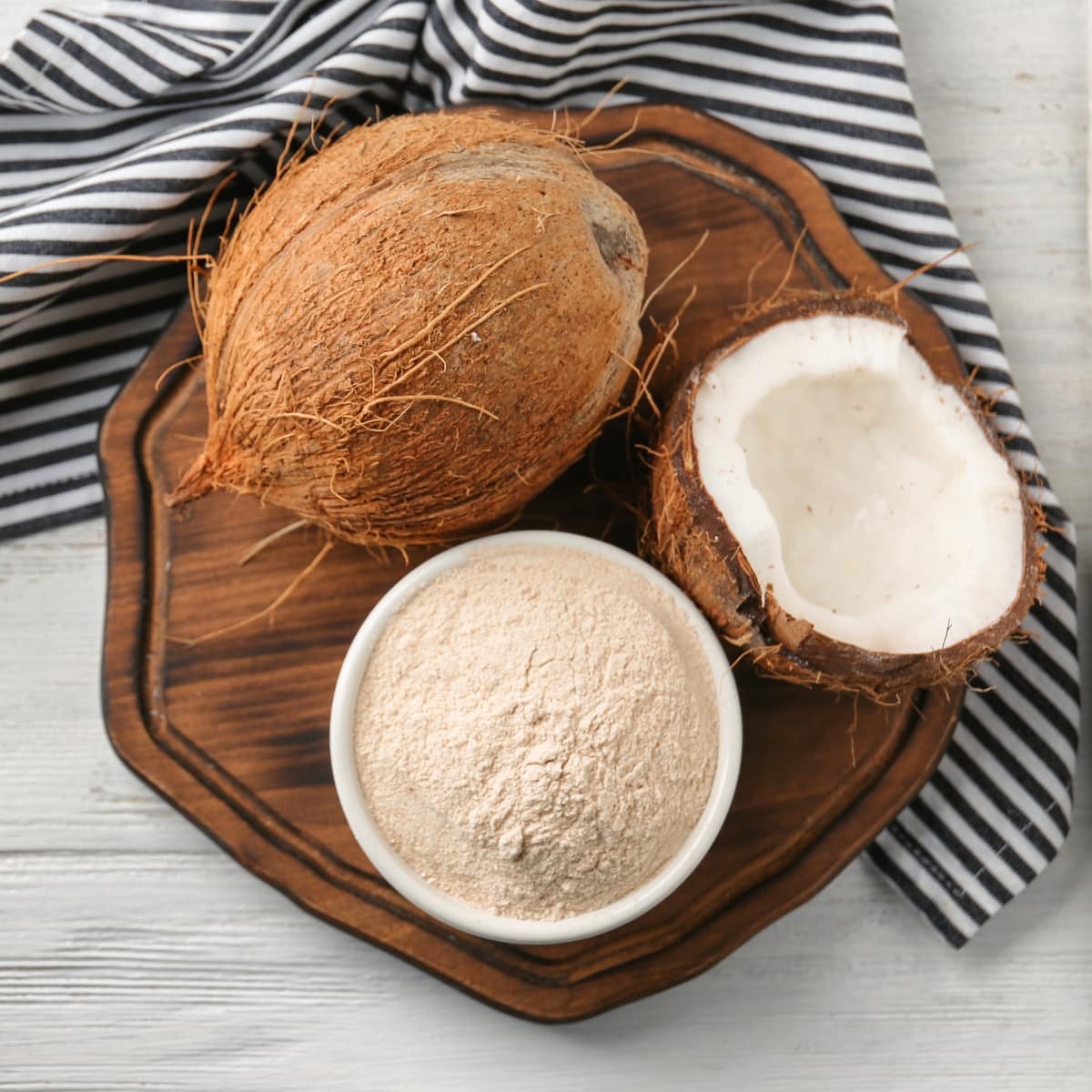
Each alternative brings unique character to your recipes without missing the perfect texture and flavor.
Ready to make some changes? Check out what these coconut flour substitutes offer to your culinary creations.
What Is Coconut Flour?
Coconut flour, derived from dried coconut meat, has quietly become a favorite in the health-conscious baking community.
Popular among Paleo, keto, and gluten-free bakers, this flour is not just about its gluten-free advantage. It’s also rich in dietary fiber and protein.
This flour brings a subtle coconut essence to your baked goods, offering a soft, slightly cakey finish.
However, its unique nature requires some recipe adjustments, especially with liquid ingredients.
While it might take some experimentation to get things right, the results are truly rewarding.
Common Uses for Coconut Flour
Coconut flour isn’t just another pantry staple. It’s a ticket to a tropical, gluten-free paradise. Its common uses in cooking and baking include:
- Baked Goods: From breakfast muffins, pancakes, and waffles to bread and pastries, coconut flour is a star. It lends a unique, mildly coconut flavor and soft texture.
- Thickening Agent: Have a sauce or gravy that’s too runny? Coconut flour, with its incredible absorbency, is your secret thickening agent.
- Breading: It’s a gluten-free alternative for breading fish, chicken, or vegetables before frying or baking.
- Smoothies: Toss in a spoonful to your morning blend and make your smoothies a fiber-packed delight.
- Desserts: It’s used in making cookies, brownies, bars, and even some traditional desserts like coconut flour-based cakes.
- Binders: In recipes like meatballs or veggie patties, coconut flour can help bind ingredients together.
- Tortillas & Flatbreads: There are specific recipes where coconut flour replaces traditional flour to make gluten-free tortillas and flatbreads.
Remember, while coconut flour is all kinds of fabulous, it has its unique quirks. Swapping it directly for your regular flour might need some tinkering with measurements.
Best Coconut Flour Substitutes
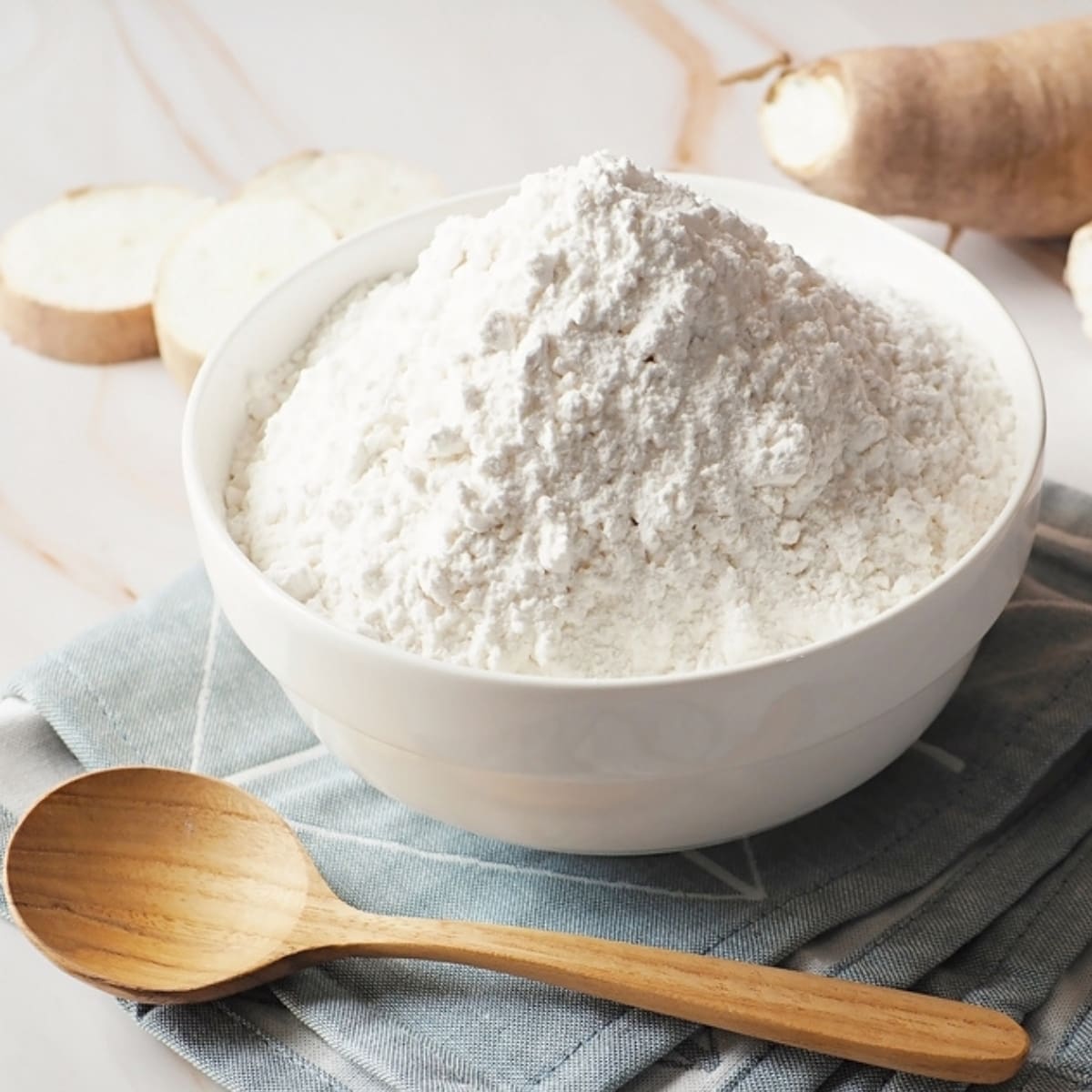
1. Cassava Flour
Cassava flour has a soft, powdery texture similar to coconut flour. This gluten-free wonder is made from cassava root, giving it a neutral taste.
It’s more carbohydrate-dense than coconut flour, so don’t swap it on a 1:1 ratio. This also means that this substitute is not ideal if you’re looking for a low-carb alternative.
Cassava flour is great for bread, tortillas, or Paleo recipes and maintains a soft interior with a delicate crust.
How to substitute: Use a 4:1 ratio when replacing coconut flour. Four parts cassava flour for one part coconut flour.
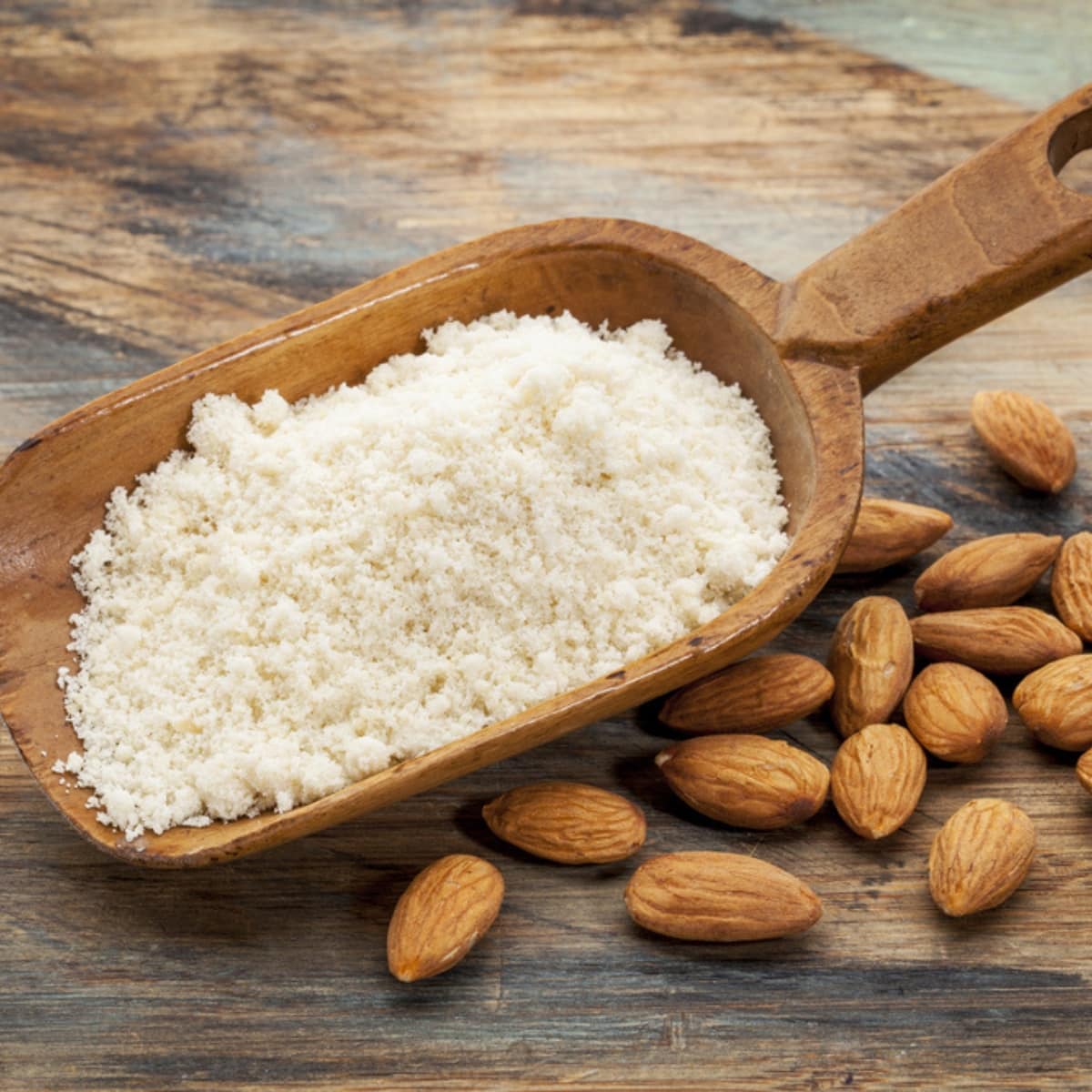
2. Almond Flour
From the mighty almond tree comes a nutty and delightful flour. While denser than coconut flour, it offers baked goods a moist and tender crumb.
It’s packed with proteins and healthy fats. However, since it lacks coconut flour’s absorbency, you might need to adjust the liquid ingredients.
Ideal for keto diets and grain-free pastries, it’s a champion in cookies, cakes, and even pie crusts.
How to substitute: Use a 4:1 ratio when replacing coconut flour. Adjust the liquid ingredients to reach the desired consistency.
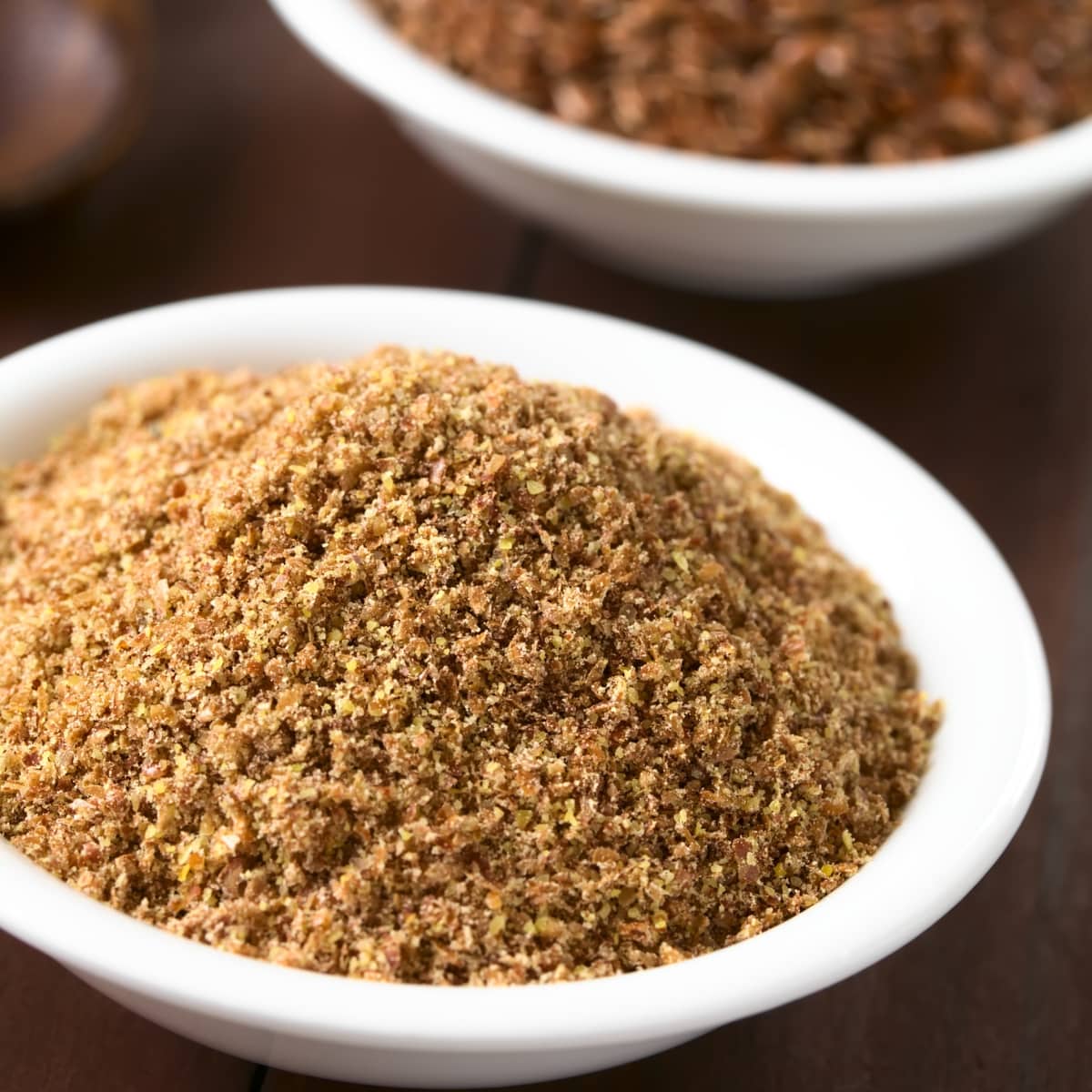
3. Flax Meal
Flax meal is ground-up flax seeds with a mildly nutty flavor. It’s a powerhouse of omega-3 fatty acids. When mixed with water, it gels up, making it a great binder, much like coconut flour.
However, its consistency is denser. It’s often used in vegan recipes as an egg substitute. It’s also splendid in muffins, pancakes, and bread.
But remember, its absorbency can sometimes demand a bit more liquid.
How to substitute: Use a 3:1 ratio when replacing coconut flour. Three parts flax meal for one part coconut flour.
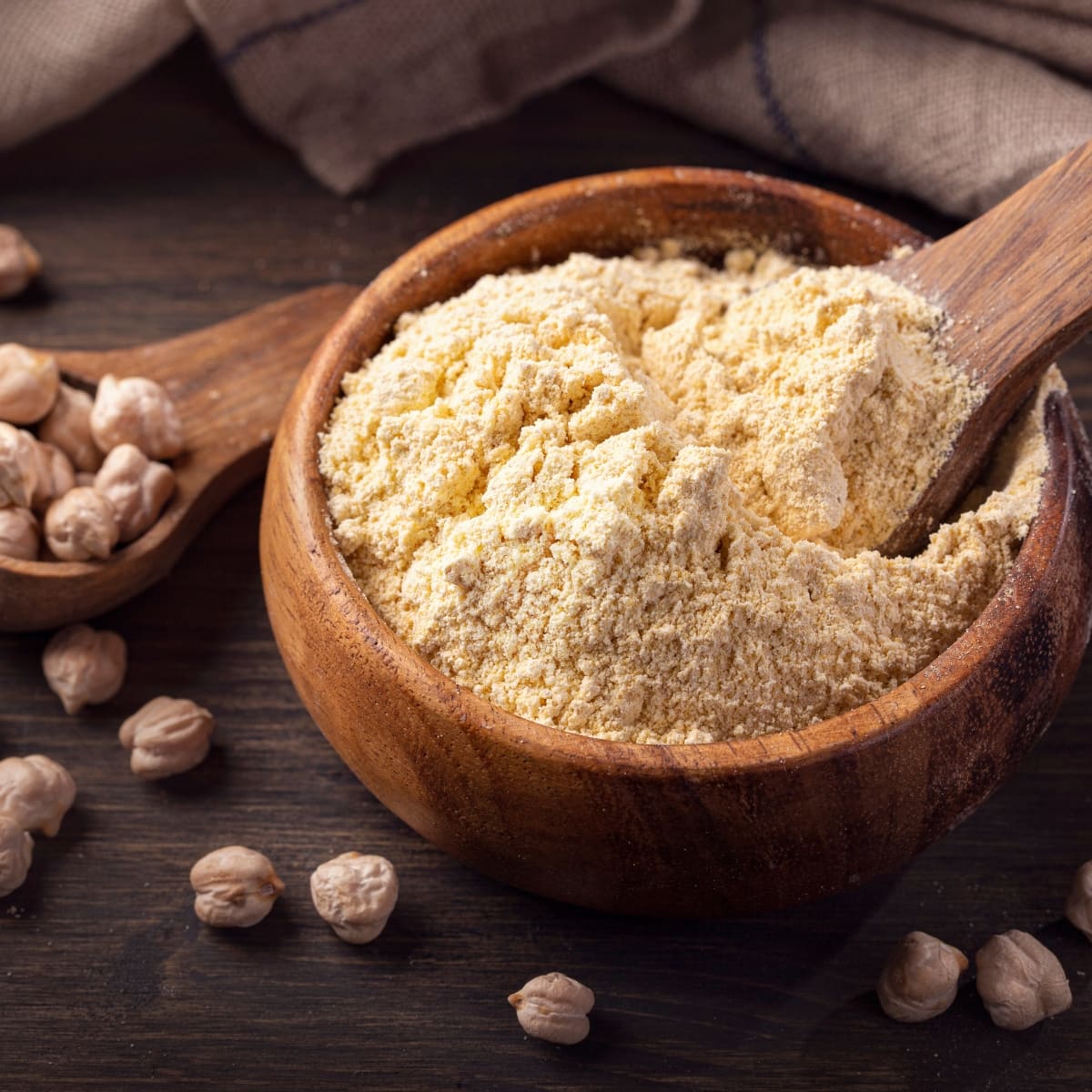
4. Chickpea Flour
Chickpea flour is rich in protein and is naturally gluten-free. It’s a culinary staple in many global cuisines.
It has a distinct, slightly bean-like taste, which is exciting in various dishes.
While its texture is denser than coconut flour, it works wonders in savory recipes like baked goods. For an adventurous twist, try it in omelette recipes or fritters!
How to substitute: Use a 2:1 ratio when replacing coconut flour. Two parts chickpea flour for one part coconut flour.
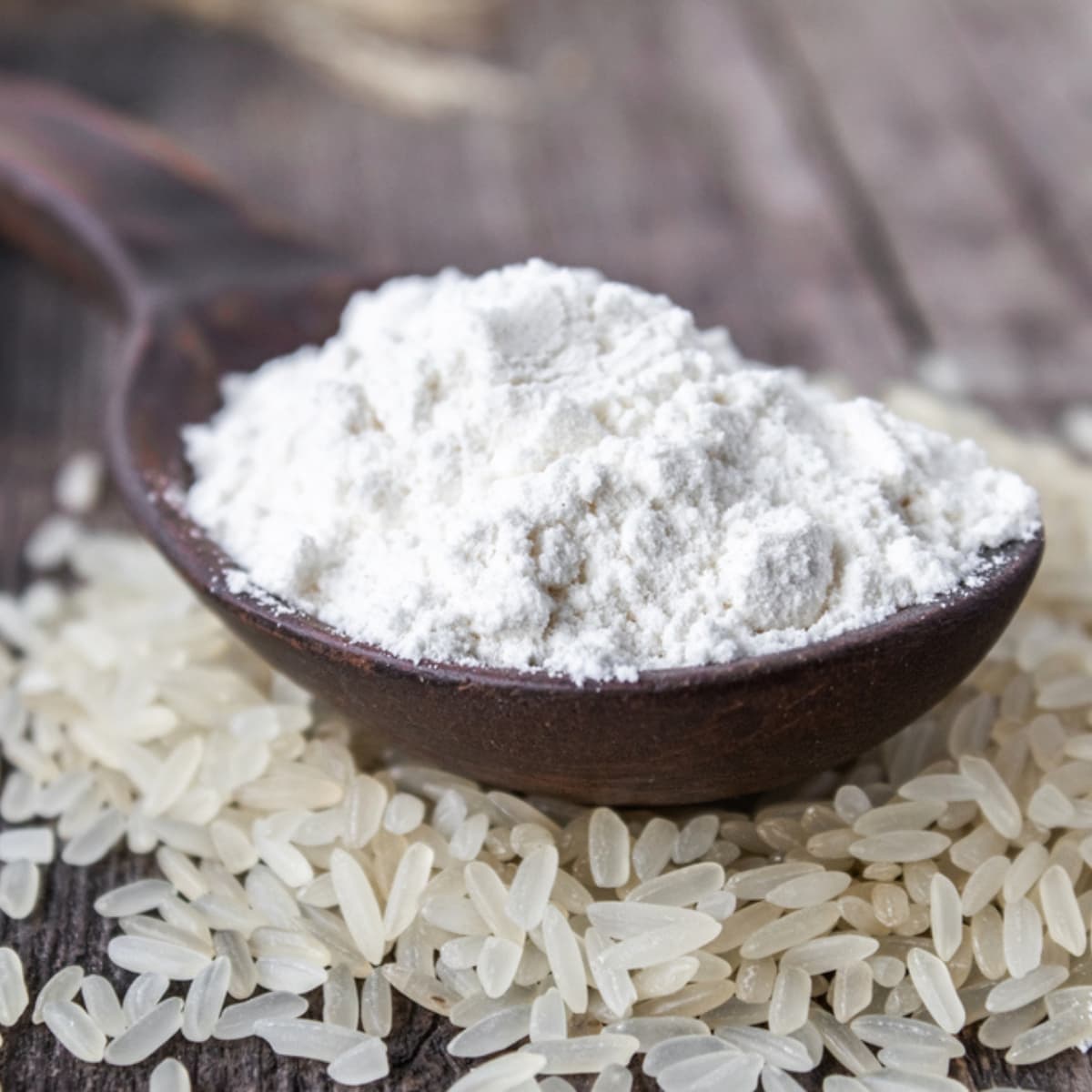
5. Rice Flour
From sushi to desserts, rice isn’t just for side dishes! It’s made from finely milled rice. It’s lighter than coconut flour and offers a delicate sweetness.
Its subtle flavor makes it versatile, but it doesn’t have the same absorbent qualities as coconut flour. You might need to tweak moisture levels in your recipes.
It’s a favorite in Asian desserts, pancakes, and light breads. Try combining it with other gluten-free flour for a delightful, soft texture in treats.
How to substitute: Use a 3:1 ratio when replacing coconut flour. Three parts rice flour for one part coconut flour.
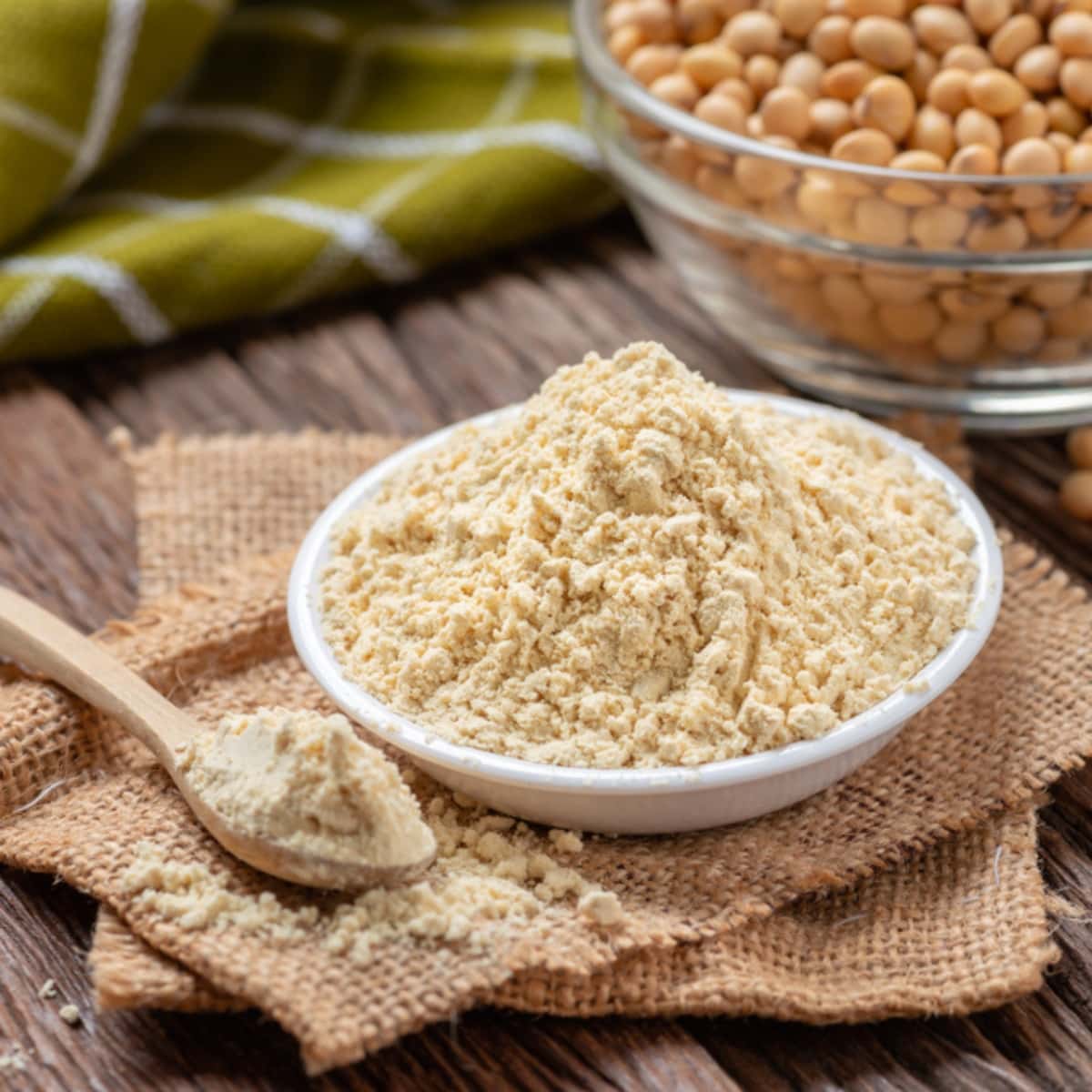
6. Soy Flour
High in protein, soy flour is more potent in flavor.
It’s dense, so when substituting, consider adjusting the liquid ingredients.
This powerhouse flour is excellent for vegan diets and shines in sweet and savory recipes. Think brownies, bread, and even thickening soups!
How to substitute: Use a 2:1 ratio when replacing coconut flour. Two parts soy flour for one part coconut flour.
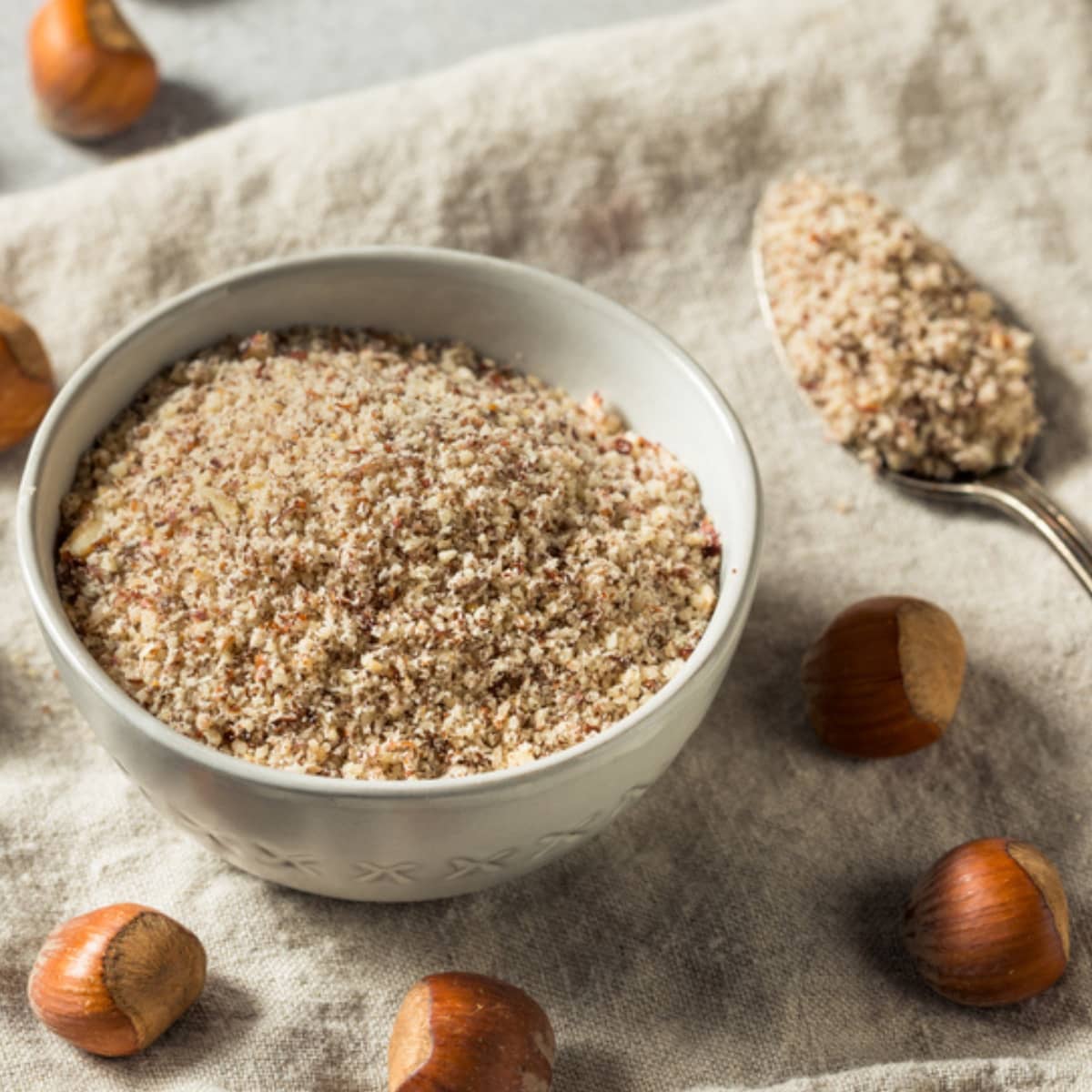
7. Hazelnut Flour
Rich, aromatic, and nutty, this flour can elevate the taste of any dish.
While it’s not as absorbent as coconut flour, its richness can make desserts and pastries decadent.
Imagine cookies, muffins, and cakes with a sophisticated, nutty undertone. Hazelnut flour is absolutely perfect for those gourmet baking days!
How to substitute: Use a 2:1 ratio when replacing coconut flour. Two parts hazelnut flour for one part coconut flour. Adjust the liquid ingredients to reach the desired consistency.
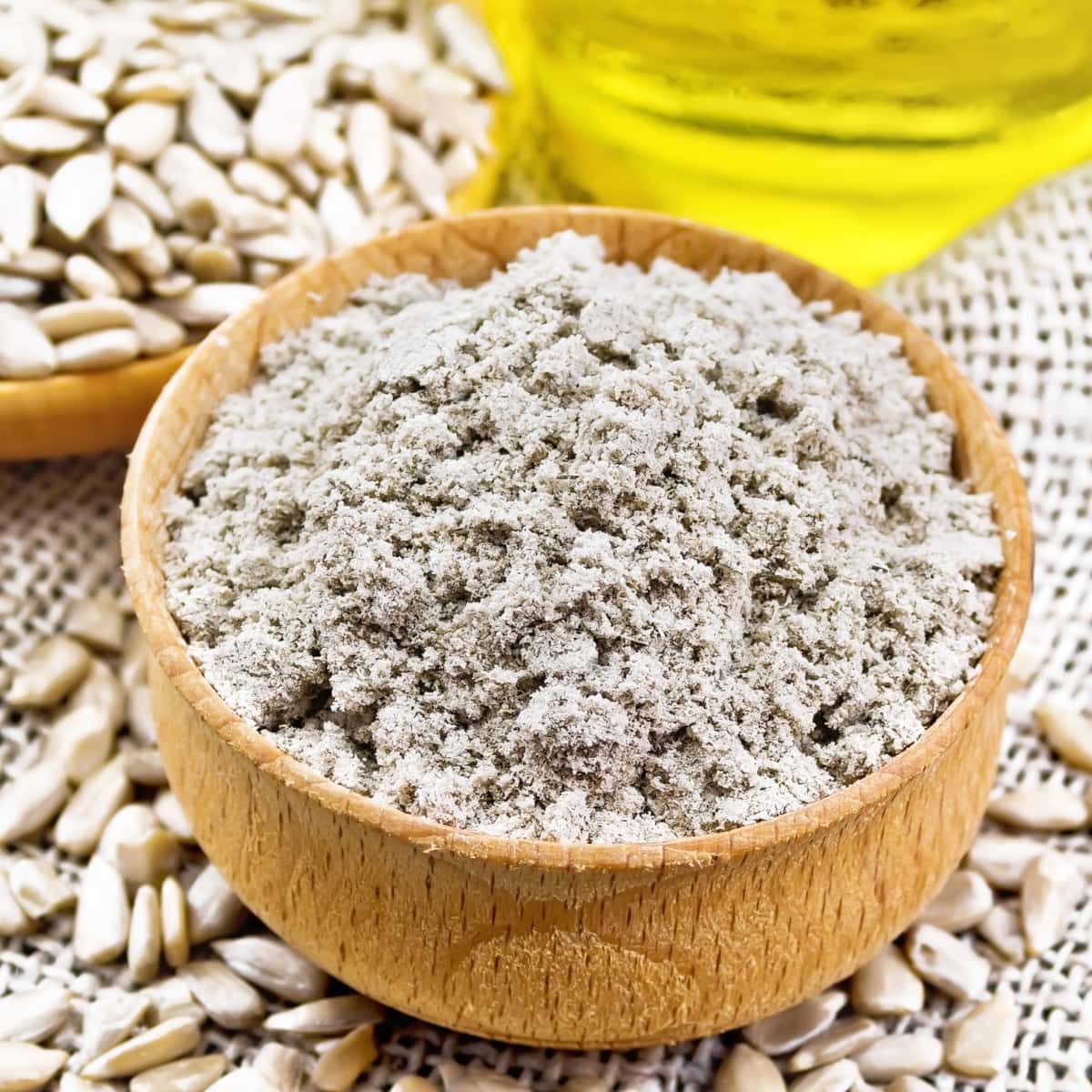
8. Sunflower Seed Flour
The sunflower isn’t just a pretty face. Its seeds make for a nutty and versatile flour.
Sunflower seed flour offers a mild flavor profile, making it an easy addition to many recipes. It’s a fantastic alternative to almond or hazelnut flour for those with nut allergies.
While it has a slightly different texture, it does well in cookies, bread, and grain-free recipes. Sunflower seed flour is a sun-kissed choice for diverse dishes!
How to substitute: Use a 4:1 ratio when replacing coconut flour. Four parts of sunflower seed flour for one part coconut flour.
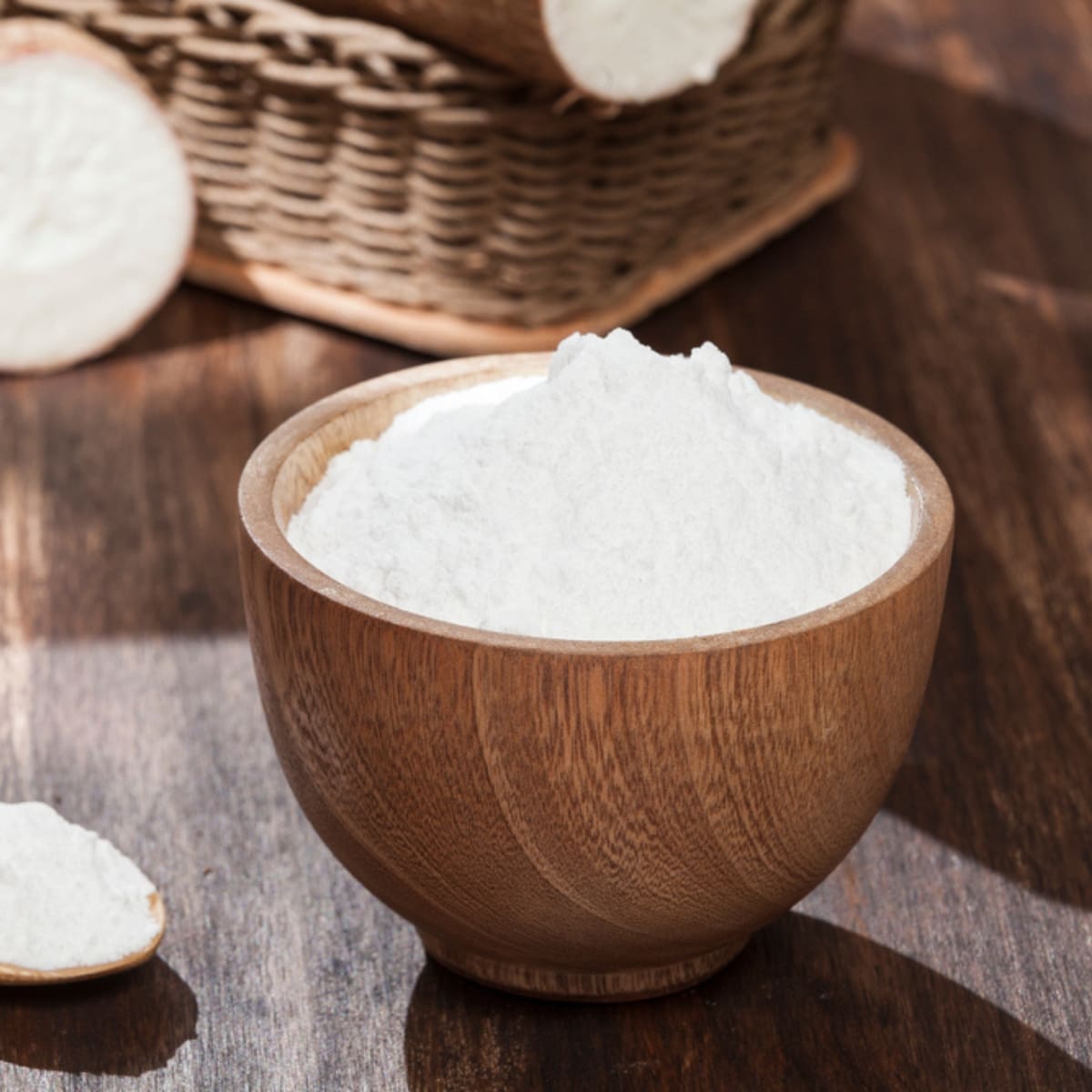
9. Tapioca Flour
Derived from the cassava plant, tapioca flour is light and velvety with fantastic thickening powers. Unlike coconut flour, it’s less dense and doesn’t have high absorbency.
Tapioca flour is a star in gluten-free baking. It especially shines when combined with other flours to improve texture and crispiness.
It’s ideal for pies, gravies, and sauces as a thickener. Fun fact: it’s also the magic behind the chewy delight of bubble tea pearls!
How to substitute: Use a 1:1 ratio when replacing coconut flour as a thickening agent. One part tapioca flour for one part coconut flour.
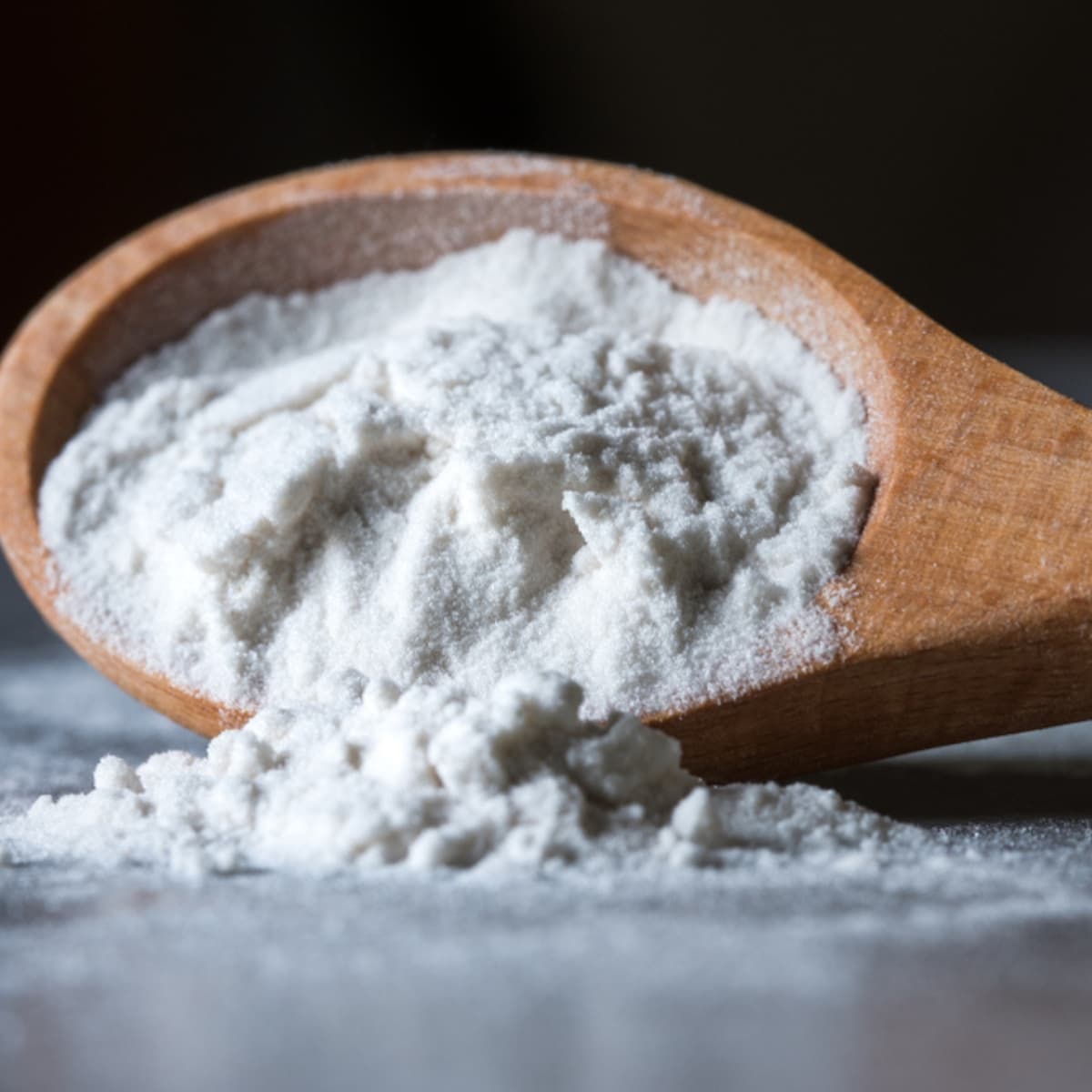
10. Arrowroot Flour
Hailing from the tropics, arrowroot flour is extracted from the arrowroot plant’s rhizomes. It’s a smooth flour with excellent thickening abilities, often compared to cornstarch.
It’s lighter than coconut flour, and it’s commonly used in grain-free and gluten-free baking. Arrowroot flour lends a soft, chewy texture to cookies and cakes.
It excels in thickening sauces, gravies, and jelly recipes without imparting a strong flavor.
Arrowroot flour is your trusty companion for a silky-smooth finish in your culinary delights.
How to substitute: Use a 1:1 ratio when replacing coconut flour as a thickening agent. You can use it as a slurry or add it directly to your recipe.
